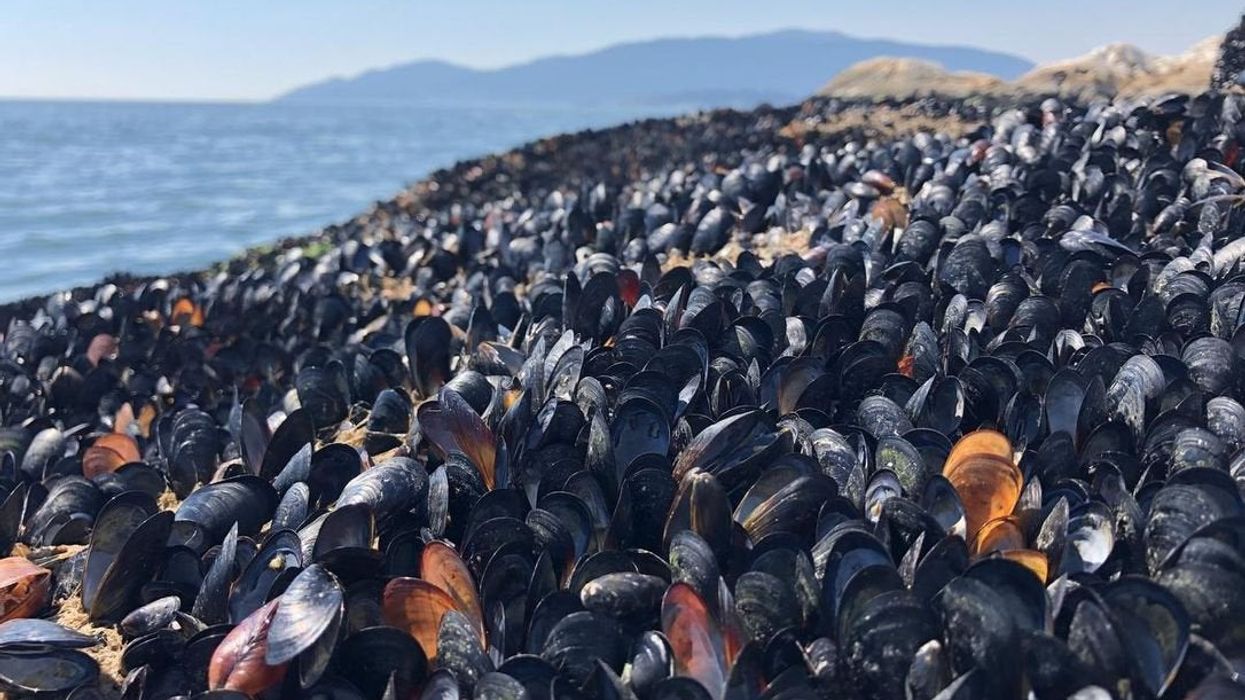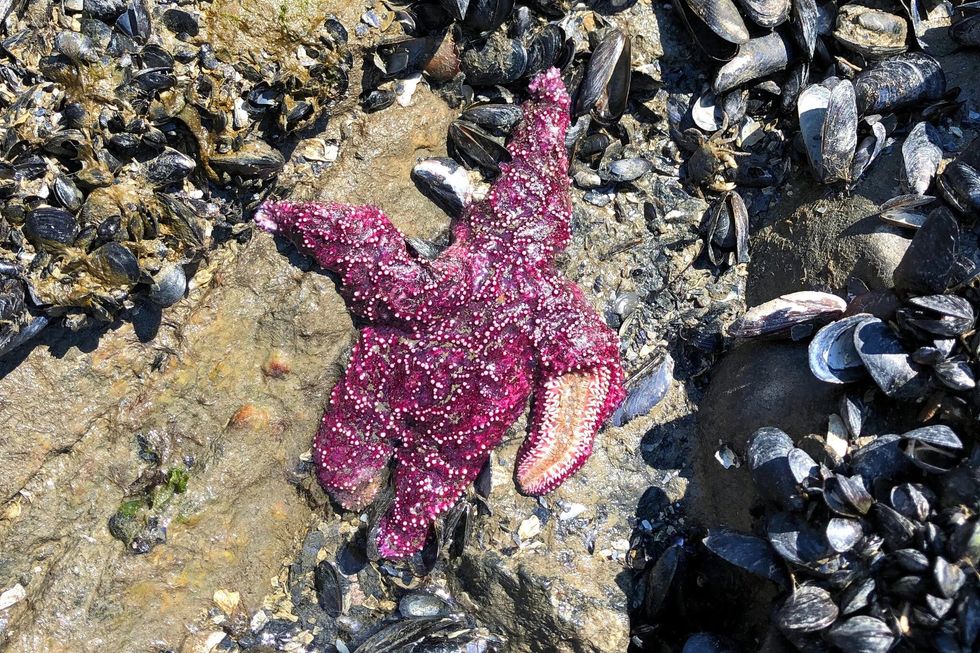Becca Monaghan
Jul 12, 2021

Scorching temperatures result in a marine massacre
Christopher Harley / University of British Columbia
The Pacific North West experienced record-breaking heat in the last few weeks with temperatures that soared to a shocking 121F in some areas - and 104F along the coast.
The intense heat not only killed as many as 500 people in the province of British Columbia, but also caused the ecosystem to collapse.
The ‘heat dome’ caused mass devastation after it was revealed to have killed off sea creatures by the tens of millions - though the total number is expected to be much higher than a billion. Dead crabs, mollusks, star fish and dehydrated clams were among the victims of the marine massacre which lasted five days straight.
Christopher Harley, a marine biologist from the University of British Columbia has been working in the Pacific Northwest for around 25 years and said this rare occasion is ‘far more extensive’ that he’s ever seen. A walk along a Vancouver’s Kitsilano Beach highlighted the severity of the situation.

“The shore doesn’t usually crunch when you walk on it. But there were so many empty mussel shells lying everywhere that you just couldn’t avoid stepping on dead animals while walking around”, he said.
Speaking to the NPR, Harley pointed out the vulnerability of the ecosystem, “If it happens that frequently, the system won’t have time to recover in between the die-offs”.
Harley worries that the initial 1 billion count is too low and continues to survey the deaths caused by the aftermath of the heatwave. He said:
“I’m also looking for all these dead barnacles. I’ve been hearing from people about dead clams and crabs and intertidal anemones and sea stars. And once you really start factoring in all these different species, it’s been a huge catastrophe for marine life.”
Last week’s historic heat wave led to a mass mortality event for shellfish — the impacts could have effects for gro… https://t.co/hLPlwnP66d— Matthew Smith (@Matthew Smith) 1625600495
According to the marine biologist, this will temporarily affect the water quality in the area as these sea creatives assist in filtering out the sea.
Top 100
The Conversation (0)













